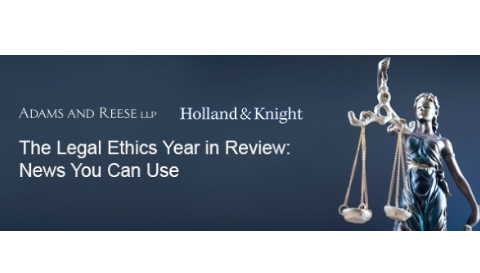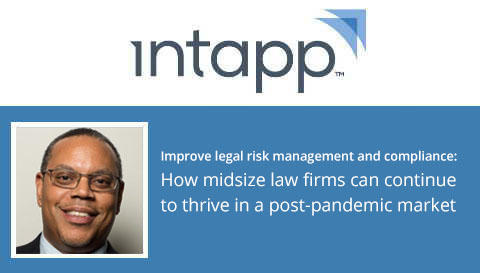Information Risk — Law Firm Malpractice/Cyber Insurance & Inadvertent Disclosure Risk, Lateral Fight Over Alleged Client Poaching & Confidential File Exfiltration
Posted on
“Abraham Watkins Sues Ex-Associate, Alleging He Took Confidential Information, Solicited Clients” —
- “Houston plaintiffs firm Abraham, Watkins, Nichols, Agosto, Aziz & Stogner has sued a former associate, alleging he solicited clients and copied files in preparation for a move to another firm, and then after he left, continued to use confidential client contact information.”
- “Abraham Watkins seeks up to $1 million in damages from Festeryga, now an associate at Ammons Law Firm in Houston.”
“In a written statement, Alarcon said Festeryga ‘categorically denies’ the allegations.” - ‘The central allegations in AW’s petition—that Mr. Festeryga secretly solicited clients while employed by AW and that he wrongfully retained client files—are false…What this case is really about is a law firm trying to fleece a young lawyer from a bonus that he earned after recovering a multimillion-dollar fee for the firm. Would-be associates of AW should take notice.'”
- “The firm also sought a temporary restraining order to, among several things, prevent Festeryga from destroying or distributing any information he took from his former firm, using any of its confidential or trade secrets information for any purpose, willfully or intentionally interfering with any of the firm’s clients relationships, communicating with any firm employee for the purpose of aiding or abetting disclosure of confidential or privileged information, or publishing or continuing to publishing any videos on social media or secretly recorded conversations.”
- “Dale Jefferson, who represents Abraham Watkins, said 333rd District Judge Brittanye Morris granted the TRO late Monday afternoon following a zoom hearing.”
- “As alleged in the original petition, Abraham Watkins managing partner Benny Agosto received information in September that Festeryga was leaving to join another firm and soliciting clients, and he confirmed on Sept. 27 with a client that the associate had told her she was ‘obligated’ to go with him to the new firm.”
- “That same day, according to the petition, Agosto confronted Festeryga about the information ‘that he was leaving the law firm, that he had already accepted other employment, that he was copying files, and that he was attempting to solicit AW [Abraham Watkins] clients to leave.'”
- “As alleged in the petition, Abraham Watkins sent Festeryga a demand that he return the information, but he has not done so and has instead continued to publicize private information on social media, including information about a confidential settlement.”
“Firms Could Face More Pressure From Insurers Following Public, Inadvertent Disclosures” —
- “The inadvertent disclosures in the Alex Jones trial and Jan. 6 investigation are likely to put more attention, and more pressure, on law firms’ technology competence.”
- “However, while many firms have legal malpractice insurance, Hinshaw & Culbertson partner Steve Puiszis, a member of the firm’s professional liability practice, noted that inadvertent disclosures aren’t always covered by these policies.’You get professional liability coverage to protect against errors or omissions that occur in the delivery of legal services,’ Puiszis said. ‘Depending on the nature of the policy, there can be exclusions written into the policy for privacy violations and perhaps the inadvertent disclosure of confidential information depending on how that exclusion is written.'”
- “Puiszis argued that this lack of coverage is another reason for lawyers to purchase cyber coverage.”
- “Recently, however, many firms have decided to forgo cyber insurance altogether, as policy coverage is shrinking and premiums are hitting record levels.”
- “Meanwhile, in some cases, an insurer can actually play a big role in helping prevent those mistakes in the first place. Take, for instance, mutual insurers. ‘We are a mutual, so it’s different. We have a unitary rating. So it’s not like their firms’ rates are going to change,’ said Mary Beth Robinson, senior vice president for loss prevention at the Attorneys’ Liability Assurance Society. ‘Instead, we go in there with education.'”
- “‘…We have a data security prototype policy that we circulate that our members have access to that talks about all kinds of things like inadvertent email transmission, dealing with highly sensitive information, document creation [and] cloud-based file sharing…We will turn firms away if we don’t think that they have adequate processes and policies and claims history to join… So, there is a process to be able to join and a minimum size,’ she said.”









